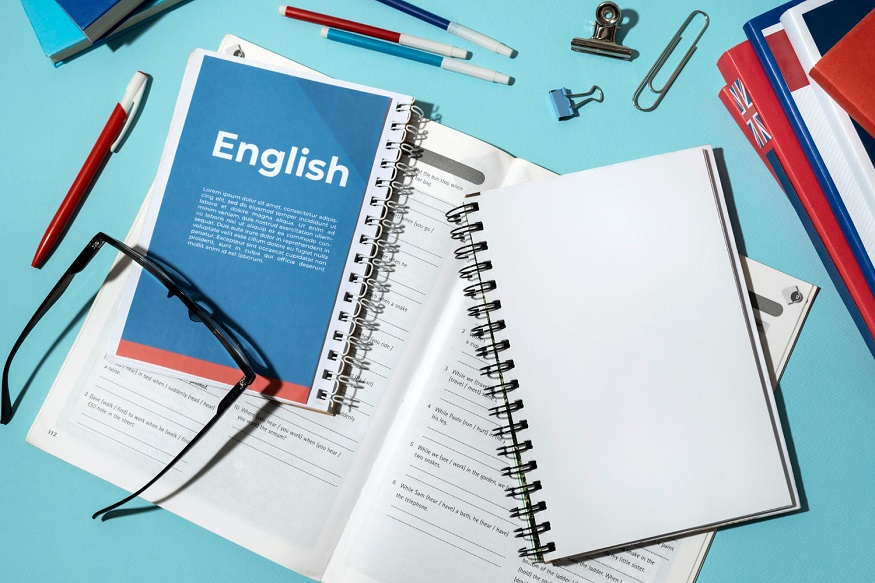English, being the lingua franca of the world, is a critical tool for global communication. Whether in business, media, or academia, English serves as the common thread linking diverse cultures and facilitating international dialogue.
Considering the global scenario, the International Olympiad of English Language (IOEL) holds a special place as it offers a unique, global platform for learners to demonstrate their linguistic proficiency and scholastic aptitude. A globally recognized English language competition, it provides a stepping stone for students to demonstrate and improve their command of the English language. The event acts as a catalyst to enhance language competence by focusing on enhancing an individual’s listening, speaking, reading, and writing skills.
The iOEL is organised by the internationally reputed Silverzone International Foundation, which fosters academic excellence and competitive spirit among the students. Since its inception, the Foundation has worked diligently to promote aptitude development, critical thinking, and competitive readiness among students worldwide, primarily through conducting several International Olympiads
In this blog, we will explore the important details of the iOEL for the benefit of parents and students.
Also Read: Top Olympiad Exams in India for Class 1 to 12
Importance of the International Olympiad of English Language (iOEL)
In the current day and age, mastering the English language has become more important than ever. The iOEL aims to encourage a deeper understanding of English as an international language, promote its proper usage, and cultivate students’ skills in logical reasoning and problem-solving ability. It promotes the idea that language learning should not merely be a chore for school curriculum but rather should be a step towards personal and professional development
Through engaging problem-solving exercises and in-depth language tasks, IOEL instils an enjoyable and interactive learning process. This forms an essential foundation required for students attempting to gain an in-depth understanding of the English language, its intricacies, grammar, and vast vocabulary.
Moreover, the IOEL encourages critical thinking and creativity. Traditional language learning methods often focus solely on rote learning, offering little stimulation for intellectual growth. Conversely, the Olympiad questions are designed to incite curiosity, encouraging students to think beyond the conventional to solve problems.
Participation in the Olympiad also offers a great boost to the student’s self-esteem and confidence. Success in an international platform not only validates one’s skill but also imbues a sense of achievement. The recognition and accolades received from such platforms considerably enhance a student’s future academic prospects.
Also Read: All you need to know about cracking international exams
iOEL Eligibility
The iOEL is an annual examination conducted based on the syllabus provided by various boards, including the CBSE/ICSE and numerous other State Boards.
All the students who are currently studying in the class 1st to 12th are eligible to apply for iOEL.
iOEL registration process
Students keen to participate need to submit an application form for the iOEL through their respective schools registered with SilverZone Foundation. A minimum of 20 students need to be registered for the iOEL, from the school.
The school is required to submit the duly filled registration form on behalf of its students. The roll number/ admit cards will be given only to those students who submit the application form to the school before the last date.
iOEL Pattern
The iOEL, held annually, is divided into three levels.
Level 1 involves the participation of students from grades 1 to 12 from various schools, irrespective of the boards (ICSE, CBSE, or any other State Board). The test is conducted within the school premises and encourages participation from a large number of students.
In Level 2, the top 1000 rankers from Level 1 progress to the next stage. This level of exam is conducted in the respective schools of the qualifying students.
Level 3, the final stage, invites the top two students from every participating school, who then compete for the championship title. International Olympiad 1st rank holders of Classes 6th to 12th from 2nd level will be eligible for level 3.
The iOEL exam is organised in the respective schools of the participants during school hours.
- Mode of iOEL exam: Online and offline
- Type of questions: Objective type multiple choice questions
- Language of questions: English
- Duration of the exam: 40 minutes
- Number of questions: Different for various classes as given below.
o For Classes 1-2: 25 questions
o For Classes 3-5: 30 questions
o For Classes 6-8: 35 questions
o For Classes 9-12: 40 questions
There will be a different question paper for each class. All the questions are objective-type with no negative marking for wrong answers.
Also Read: Top Ten Mistakes By Students In Entrance Examinations
iOEL syllabus
The iOEL includes a syllabus split according to class levels (class 1 to class 12), primarily based on the textbooks.
Different sections in the syllabus focus on English Grammar, Comprehension, and Composition, aiming to expand and enrich the English vocabulary of the participating students. The detailed syllabus, as well as some sample papers, are readily available on the official website of the organising body for practice purposes.
It comprises a comprehensive syllabus, designed to align with the curriculum taught in schools worldwide.
iOEL Class 1-2
For class 1 and class 2 students, the iOEL syllabus is developed in a way that stimulates their minds while building foundational English language literacy. The topics for these classes include English alphabets, simple words, nouns, pronouns, verbs, adjectives, prepositions, articles, vowels, conjunctions, and sentence structure.
iOEL Class 3-4
As students move to class 3 to class 5, the syllabus covers broader topics. It includes parts of speech, articles, adverbs, tense forms, synonyms, antonyms, comprehension, punctuation, idioms, phrases, and proverbs.
iOEL Class 5-6
The syllabus includes, adverbs, determiners, modals, tense forms, subject-verb agreement, story and poem comprehension, finding errors, jumbled words and sentences, Gerund, infinitives. At this stage students learn to construct lengthy sentences and are introduced to basic story and paragraph writing.
iOEL Class 7-9
For classes 7-9, the syllabus becomes more intensive, preparing students for even more advanced English language learning. Core topics include detailed grammar study, advanced reading comprehension, letter writing, notice writing, passages, summary and paraphrasing, story writing, and speech writing. There is an emphasis on developing strong grammar skills and enhancing vocabulary.
iOEL Class 10
Students study topics like advanced vocabulary, various forms of writing – including report and article writing, advanced reading comprehension, grammar usage, one-word substitutions, etc. Here, students cultivate skills in interpreting diverse forms of written text and expressing their thoughts creatively and effectively.
iOEL Class 11-12
The syllabus for senior classes, i.e., class 11 and 12, includes topics such as advanced essay writing, analysing and interpreting different types of texts, providing supporting arguments in writing, homonyms, one-word substitutions,
The iOEL provides the flexibility to revise and update its syllabus every year, making it more comprehensive, competitive and keeping it aligned with the dynamic nature of the English language.
To prepare for iOEL, one should focus on strengthening their English grammar, writing, and comprehension skills. Reading books, newspapers, and novels can play a pivotal role in enhancing vocabulary and understanding the language’s nuances. Practising previous years’ question papers and mock tests can also give a better idea about the exam pattern and improve time management skills.
iOEL awards
The iOEL celebrates the triumphant students by generously rewarding them. The awards range from scholarships, cash prizes, medals, certificates, and special recognition at various levels – International, Zonal, and School. The winners not only earn tangible benefits but also receive a significant boost in self-confidence and prestige among their peers.
|
1st Winner |
Cash Prize of Rs. 10,000/- along with a winner’s Trophy |
|
2nd Winner |
Cash Prize of Rs. 7,500/- along with a winner’s Trophy |
|
3rd Winner |
Cash Prize of Rs. 5,000/- along with a winner’s Trophy |
|
4th to 10th rank holder |
Exciting prizes |
|
11th to 500th rank holder |
Certificate of Topper achievement |
1st, 2nd, and 3rd position in the zone get Medals of Excellence
1st, 2nd, & 3rd position in the school get Medals of Excellence, the toppers must have obtained a minimum of 50% marks
All students: Certificate of participation.
Also Read: National Interactive Maths Olympiad
Conclusion
At EuroSchool, we believe that Olympiads like iOEL provide not just a platform for students to showcase their proficiency in the English language but are also instrumental in shaping the future generation’s language and overall cognitive abilities.
In a world increasingly interconnected through digital technology, preparing students for the international stage is more important than ever, and IOEL plays an instrumental role in this regard.









